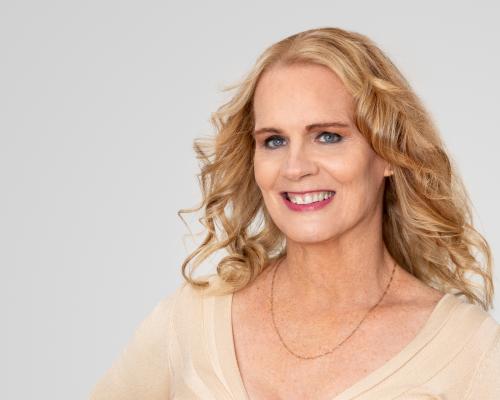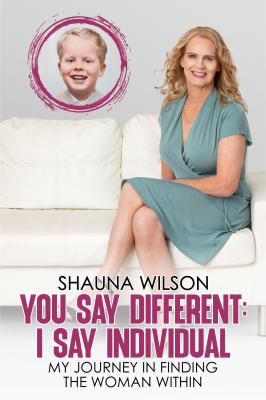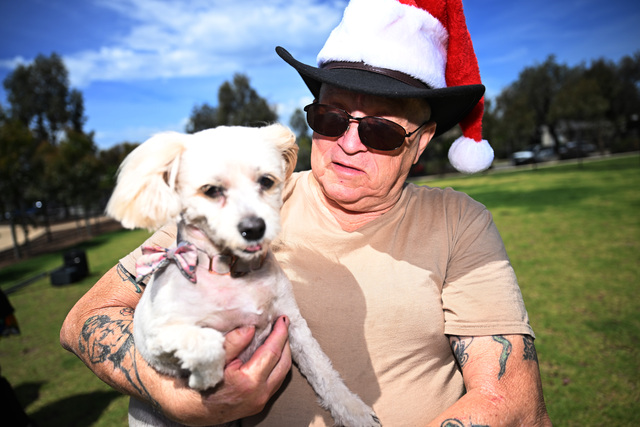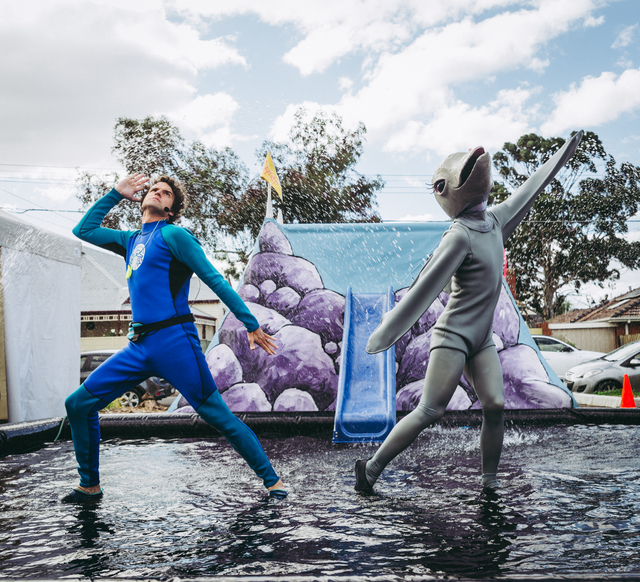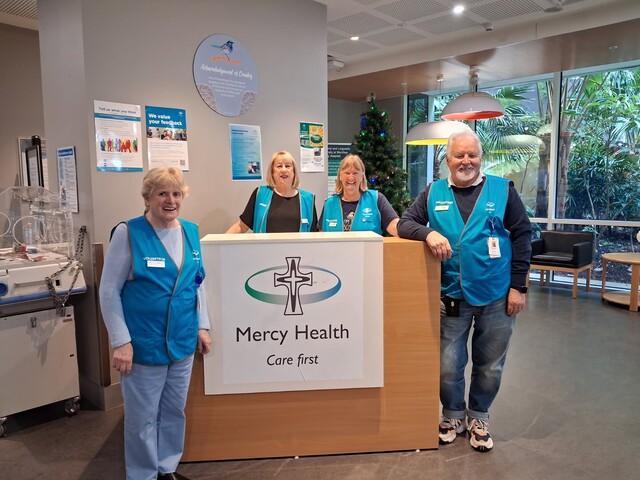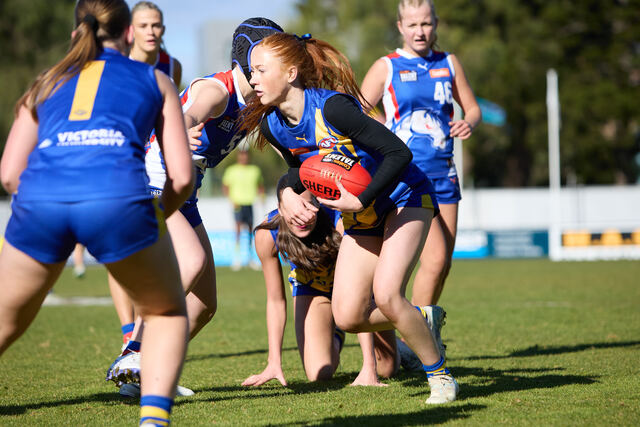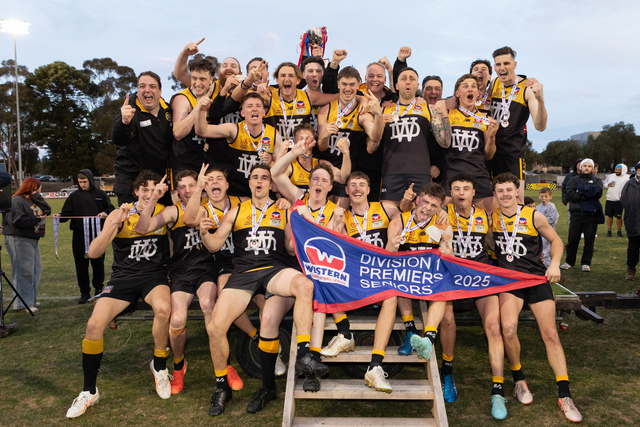Shauna Wilson was born in 1964 and named Sean by her parents.
She says she was “always female” but it took her 45 years to accept the fact.
The Wyndham resident, recently published You Say Different, I Say Individual, which is subtitled “My journey in finding the woman within”.
The book details Wilson’s journey as a “confused young little boy” to her present life as a nurse, advocate and public speaker.
It covers aspects of Wilson’s life including abuse at a Catholic school, bullying and bastardisation in the military system and the loss of her beloved 17-year-old sister to suicide.
Wilson’s own struggles with mental health, her transition to become a “proud woman” in 2008 and the development of the relationship with her husband Robert also feature.
A particularly fascinating part of the book details Wilson’s time working in the Coburg Prison Complex during the 1980s when she came face-to-face with some of Victoria’s most dangerous and notorious criminals.
Wilson said that Melbourne’s first COVID-19 lockdown in March last year provided her with an opportunity to work on the book, outside of her working hours as a nurse.
“Friends have been telling me for years that I had a story worth telling,” she said.
“I just wasn’t sure why would anyone be interested in mine.”
Wilson said she decided to write her autobiography for a number of reasons, including to learn more about who she really was and to promote the benefits of the wider community accepting people’s differences.
She said she wanted the book to be a resource for others and their families who travel a similar journey to her own.
“I also want to bring to the forefront of people’s minds the potential damage that is caused through ignorance, bullying, judgemental attitudes and rejection of those they see different,” Wilson said.
Wilson said that by the age of four, she had an inkling she might be “different” but did not know why.
She said she never “wanted” to be a woman but finally accepted who she was as an adult.
“The only decision I found I had to make was to live or die,” she said.
“By choosing to live, I accepted who I was and the potential repercussions of that decision on me, my family and my employment.
“My birth and extended family have been accepting and amazing.”
A touching photo in the book is from Wilson’s wedding. In the image, her mother Roma, a senior citizen, is walking down the aisle alongside her daughter.
Wilson said there was “no way” she could have undergone gender transition in the 1960s, ’70s or ’80s.
“There were still the traditional attitudes that everyone was brought up on by the older generation of the ’30s, ’40s and ’50s,” she said.
Wilson said that fortunately, society was now more liberal.
“Social acceptance has changed over recent decades that has allowed confidence in many to accept and be openly comfortable presenting who they really are,” she said.
“The accessibility to information and education via online portals and social networks has given to a much safer tolerance.”
In the book, Wilson recounts that many people held different views when she joined the army in 1982 as a reserve soldier.
After an unknown colleague went through her wardrobe and found some women’s clothes, she experienced both verbal and physical abuse from others in the defence force.
Despite Wilson’s harsh treatment in the army as a young person, she returned to work in the defence force twice before re-enlisting in 2010 in the Australian Army Pay Corps.
Of returning to the army, she writes: “I am sure there was mutterings about my gender in private, but at no point was I made to feel uncomfortable at all.”
Wilson went on to enjoy another eight years as a part-time soldier, which only ended after she was injured in a motor vehicle accident.
Wilson eventually left the Department of Defence to study nursing.
Nowadays, she also shares her life experience and expertise in the medical field by speaking at events, universities and TAFEs.
Three years ago, Wilson was a keynote speaker at the Australian College of Nursing (ACN) National Nursing Forum.
“I presented to over 500 of my peers on parts of my journey through life as a transgender woman to becoming a nurse in 2014,” she said.
Wilson also helped to develop the ACN’s Nursing Leadership in Diversity and Inclusion Guiding Principles document and served as a member of the college’s Men in Nursing working party, which was formed to investigate barriers and stigmas that keep males from pursuing nursing as a career.
As an advocate for diversity and inclusion, Wilson’s writes about being true to herself and refusing to become a victim.
One of the most confronting parts of the book is a sexual assault that Wilson experienced.
“To be abused by a teacher as a young child, beaten regularly by other kids as I grew up, and sexually assaulted as an adult, each had the potential to destroy me, I struggle with people labelling me brave.
“By absorbing that pain both emotional and physical, that hatred towards my attackers, and living to tell the story has
enabled me to come out the other side a much stronger woman,” she said.
“This is what makes me a survivor.”
Details: http://shaunawilson.com.au/
For assistance contact Lifeline on 13 11 14 or www.lifeline.org.au or QLife on 1800 184 527 (3pm to midnight) or qlife.org.au.

